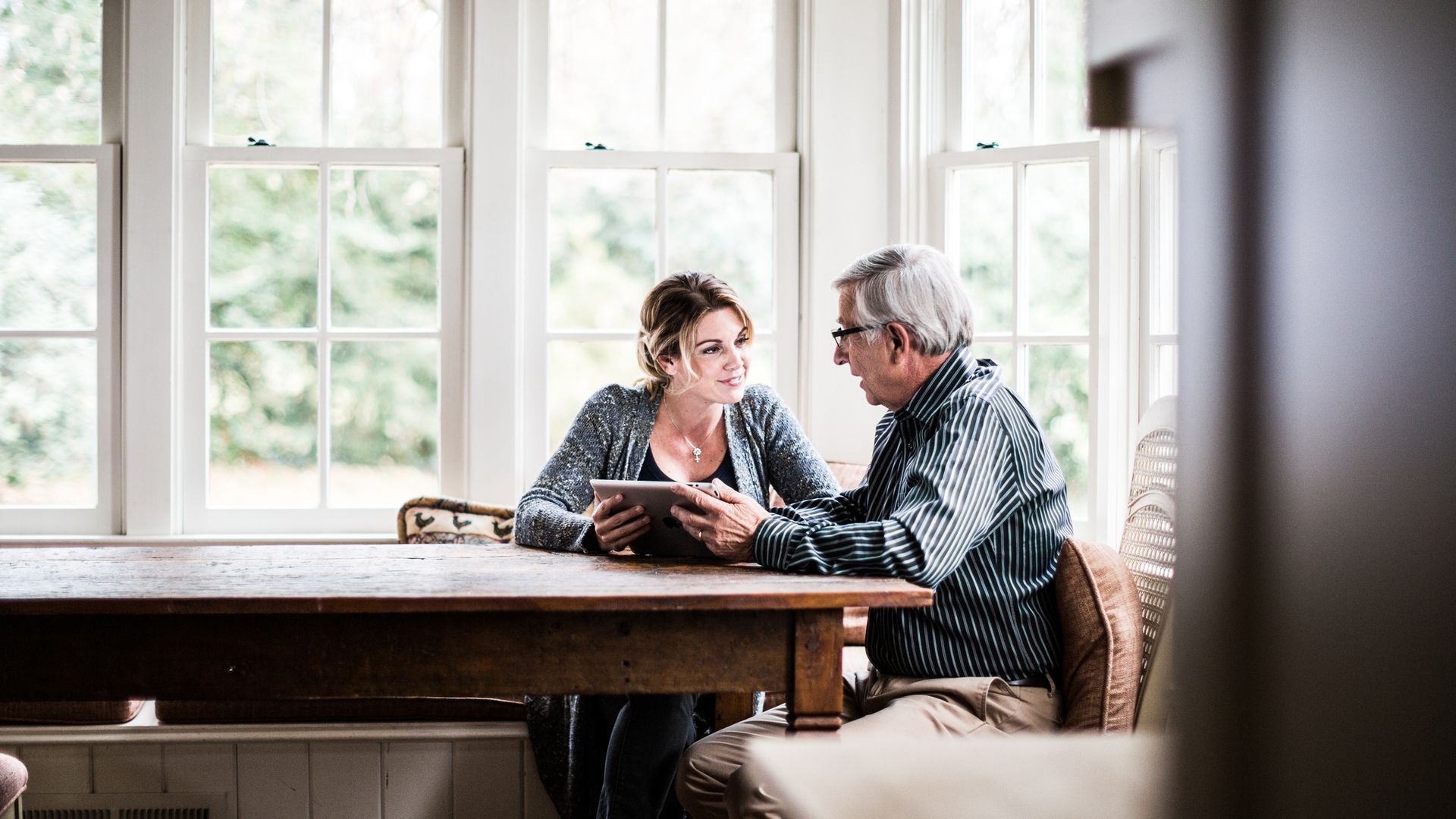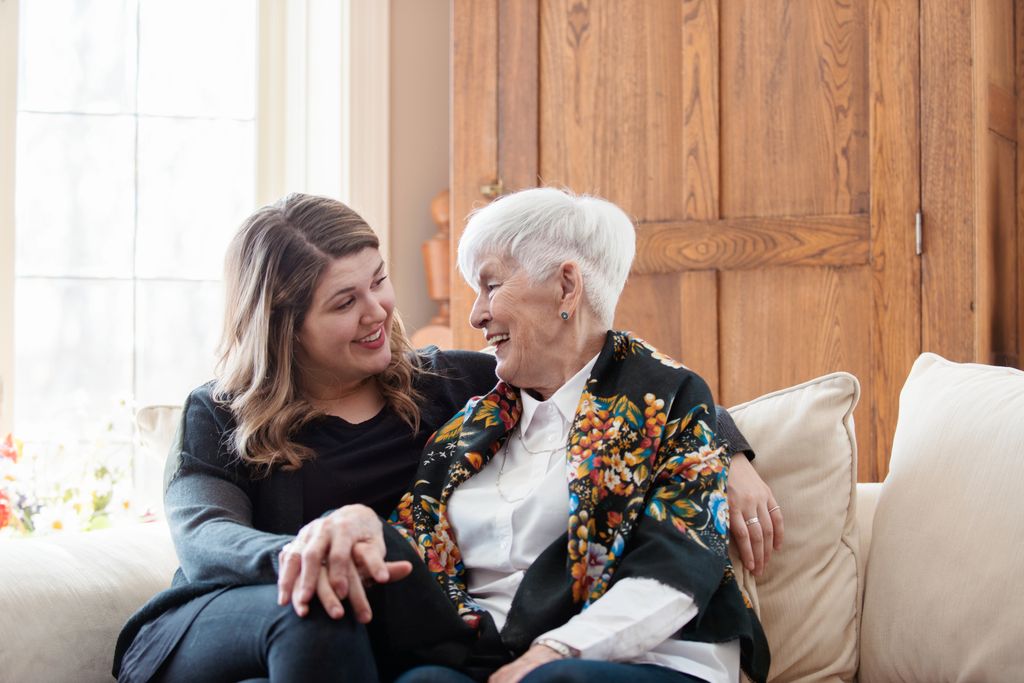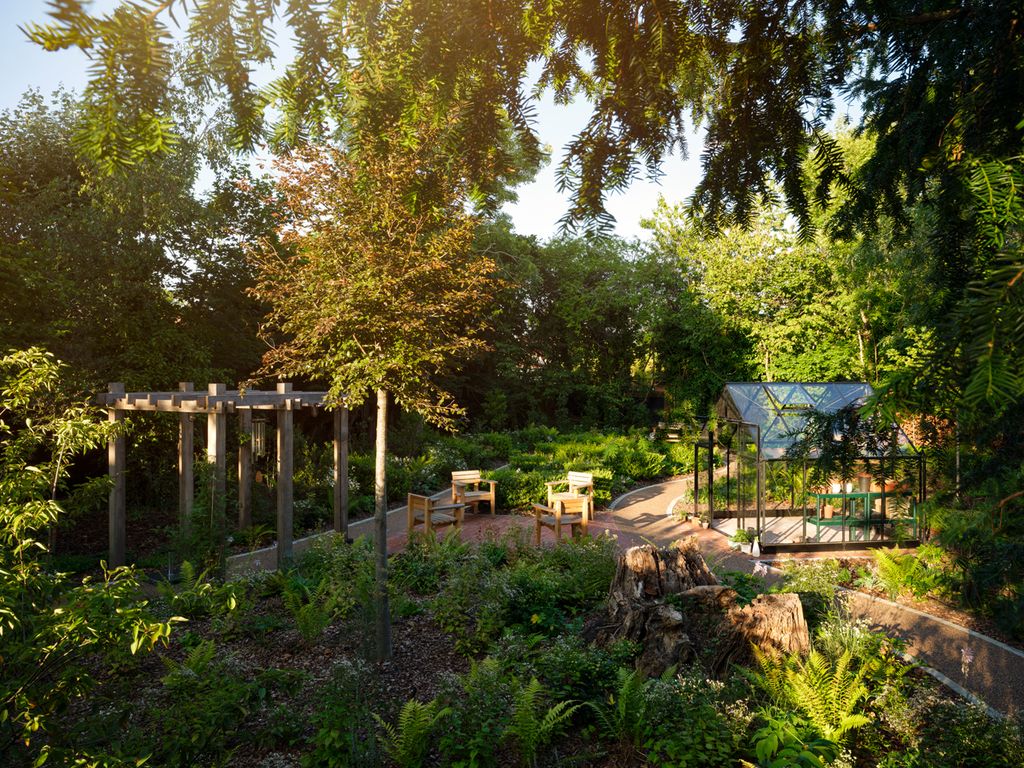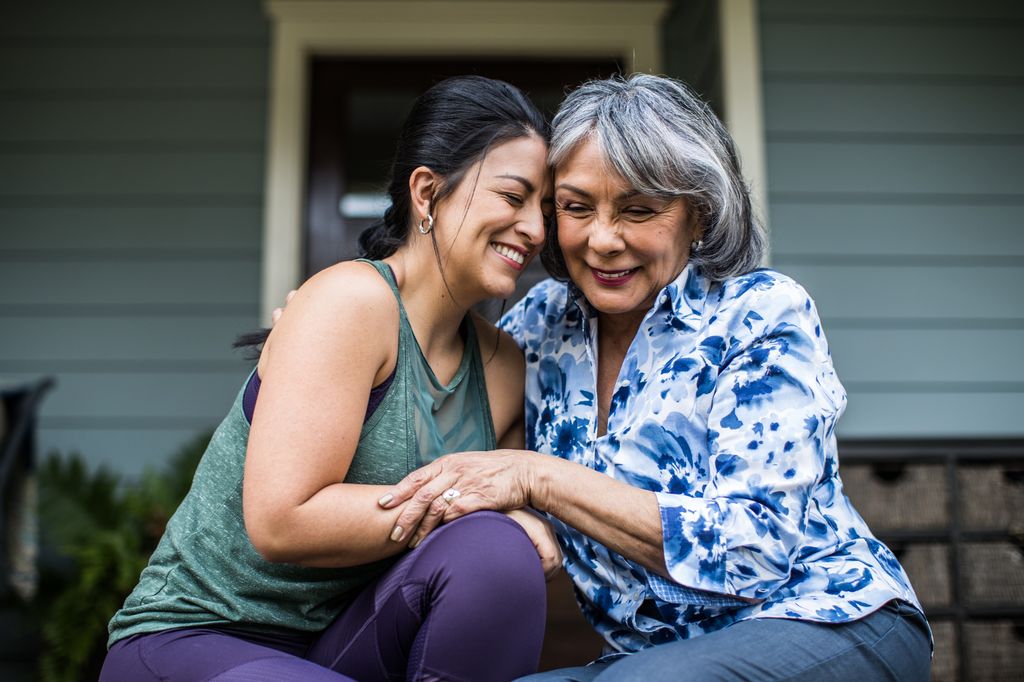Midlife comes with many challenges and one of the most difficult parts of this time in our life is when our parents stop feeling like parents. The roles reverse and you feel like you're looking after them instead. At some stage, you might feel you're unable to look after them anymore, and with this comes a sense of guilt.
"We automatically want what is best for our loved ones and preferably be the ones who can give that. But what we can offer is not always the best thing for them," says BACP-accredited counsellor Jackie Rogers. "We may have other commitments that take our time, be it juggling employment, managing a home, children and possibly our own health conditions.
"Deciding to move an elderly relative into a care home is probably not an easy one and may take some time," Jackie continues. "There is an element of having to admit to ourselves we are not superhuman. We give to others, sometimes to our detriment. We can only give so much before we exhaust or burn ourselves out."
Anticipatory grief
"There will be an element of grief when our loved one goes into a care home," Jackie explains. "They are no longer the strong able person we remember. This grief is described as anticipatory grief, grieving before someone dies and with grief comes guilt.
"Perhaps we may feel a sense of duty in wanting to look after our loved one and when this is not possible we feel a sense of failure which then can lead to feeling guilty. Other family members’ opinions or judgements may reinforce our feelings of guilt," Jackie says of why we can feel guilt of moving an elderly relative from their home.
It's natural to feel concerned about a big transition, and it's something Holly felt before her mother moved into KYN, an innovative care home based in Bickley. "My sister and I were a little anxious at first, due to a negative experience in my mum's previous home," Holly shares.
Reassurance is key
It can be a difficult time for your relative too, so it's important to reassure them about the changes ahead. "I thought it was important to focus on the positives and get my mum excited for what was to come," Holly said of how she reassured her mother ahead of her move. "I told her it was a new chapter, that it was a place where she would be happy and I pointed out how nice the people were we had met so far. She found it difficult to believe it at first and was hesitant due to her past experience, but we convinced her to try it, and a year on, she couldn’t be happier."
READ: I tried online dating as a widow in my 50s - here's what you need to know
How to make a smooth transition
"There’s so much you can do to help make the transition smoother, from helping your loved one pack their belongings and unpack in their new room, accompanying them on moving day and staying in touch regularly, including visits and phone calls," says Caroline Naidoo, Managing Director at KYN.
"Remember, it's important that you also look after yourself throughout this process - it can be difficult when someone you love is going through a significant lifestyle change."
Here she shares her advice for making sure the emotional time is as smooth as it can be.
Understand the transition process
"It's helpful to understand what a transition process might entail so you and your loved one know what to expect," says Caroline.
"Speak to the team about how they will help your loved one adjust. Understanding this fully is often a good way to reassure any worries during a process that can naturally be filled with emotions. It’s important that you take the time to understand what your loved one should expect and let them feel heard and supported."
INSPIRATION: I changed my entire life at 54 – here's what happened
Arrange a visit to the home together
"Arrange a visit to the home together to explore the facilities, meet the team and other residents, and experience what everyday life might be like in a new care home," says Caroline. "Visiting at different times of the day and attending social events can also be useful. Make sure you take plenty of time during your visit; it’s important that both yourself and your loved one can ask the questions you want and get a feel for the home."
Holly agrees that getting to know the home is key, and familiarise yourself with what others say. "I would say the most important thing is to read all the reviews of the home and make sure you do your research, so you know the home is the right fit for your loved one.
"Go and visit the home, ideally multiple times to really get a feel for it and meet different people. When you’re there, make sure you ask lots of questions. It’s worth spending time on this as I now have such great peace of mind knowing my mum is somewhere she’s well looked after and happy."
Help pack their belongings
"Helping your loved one to pack their belongings and personalise their new living space can make moving into a care home much more manageable," Caroline advises. "Make sure you work together to decide which items should come with them and anything that might need special attention when moving – what is valuable to them might not be obvious to you, and vice versa.
"It’s important to try to make their new room feel as familiar as you can, to help your loved one feel at ease and the transition smooth. It can be helpful to ask the care home for advice on what belongings they recommend bringing as some homes are fully furnished while others offer residents the option to bring furniture from home."
Accompany them on moving day
"It’s always a good idea to accompany your loved one on moving day," recommends Caroline. "This way, you can be there to help answer any questions they have or just provide a comforting presence in an unfamiliar environment."
Stay in touch regularly
"Stay in touch with your loved one through regular visits, phone calls and letters throughout," suggests Caroline. "It’s a good idea to plan a regular day and time to visit to give your loved one a routine so they know when to expect you.
"Ask the care home if there are any visitor policies or hours you should know first."
Encourage new friendships
"The transition into a care home is sometimes difficult, and it’s important that your family member has people on hand to talk to," says Caroline. "Encourage them to get to know their nurses, carers and other residents in the home.
"Healthy relationships increase your sense of worth and belonging and will help your loved one feel less lonely and happier in their new home. Getting to know people will help the transition become smoother by helping them feel more settled.
"Most care homes offer a variety of organised activities and social clubs, which are great for forming new friendships. You can often join in with some of these when you visit. This will help your loved one feel more comfortable and familiar with their new surroundings."
READ: I went on my first solo holiday at 69 – here's what happened
Be kind to yourself
"It is crucial to be kind and compassionate to yourself, especially when it comes to caring for your elderly relatives, which not only can be physically exhausting but emotionally draining too," says Jackie.
"It is also very important to take care of yourself and seek support from others, especially emotional support, be it through counselling, local carers’ support groups or charities such as Age UK."













